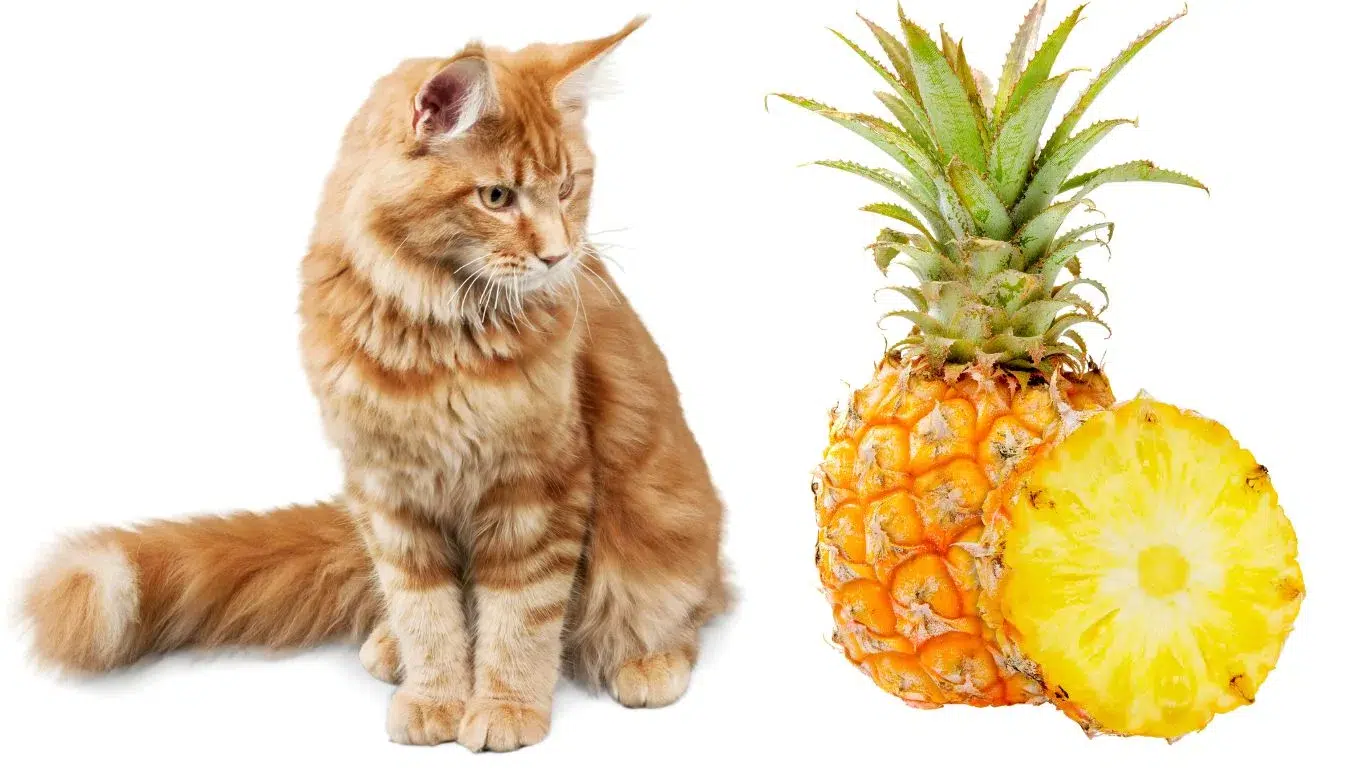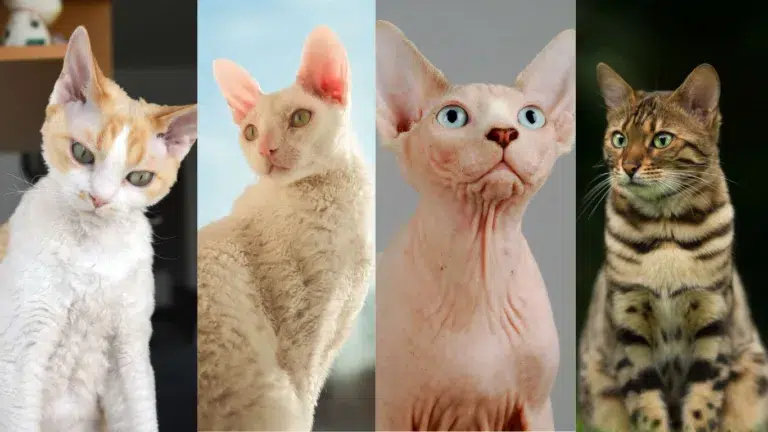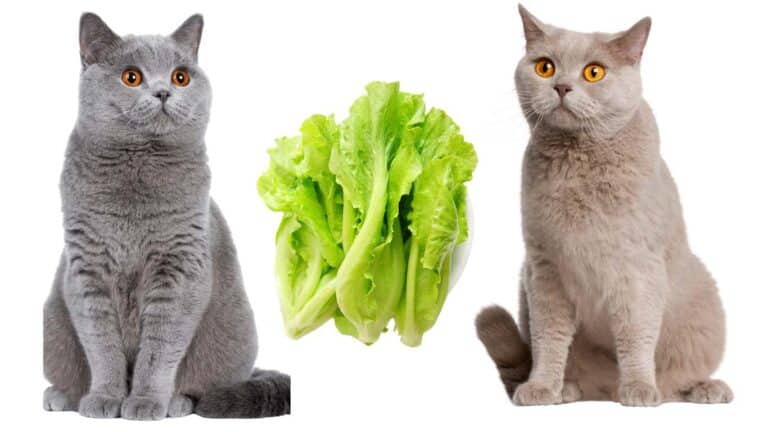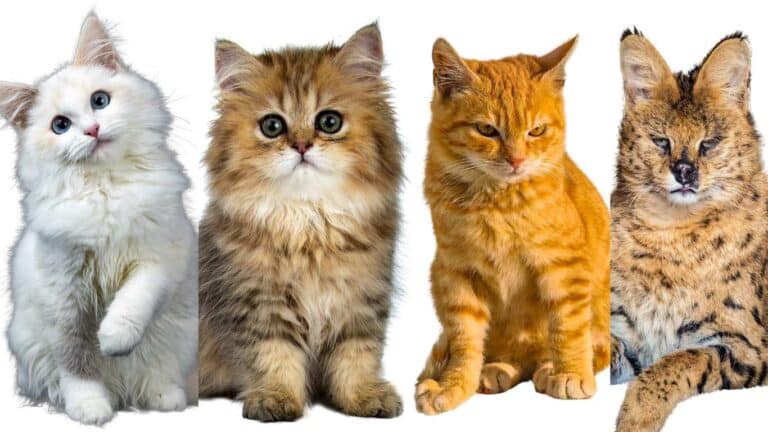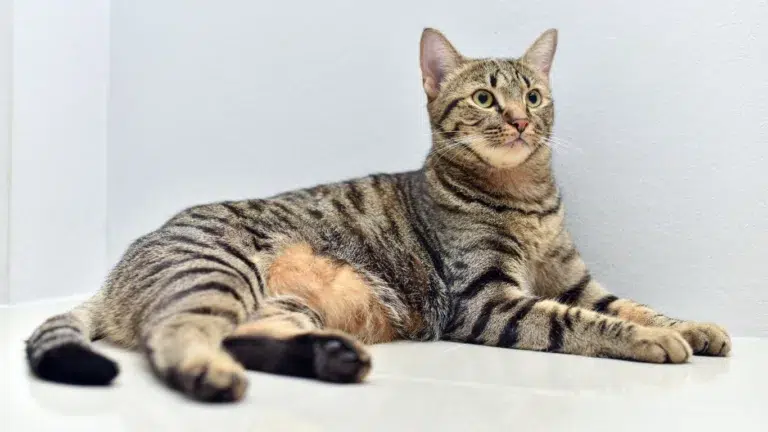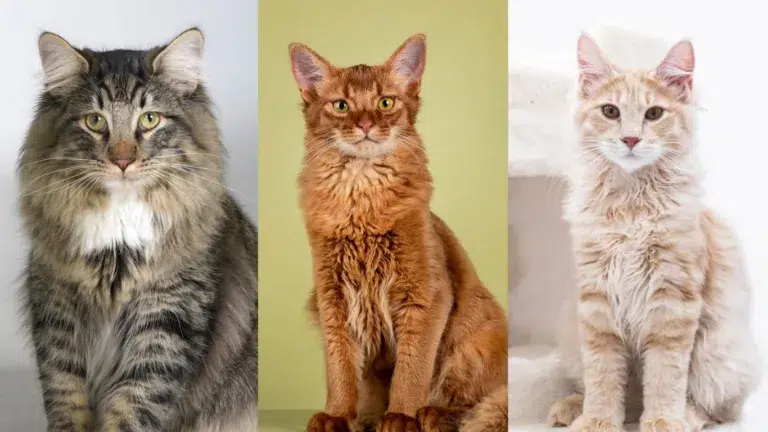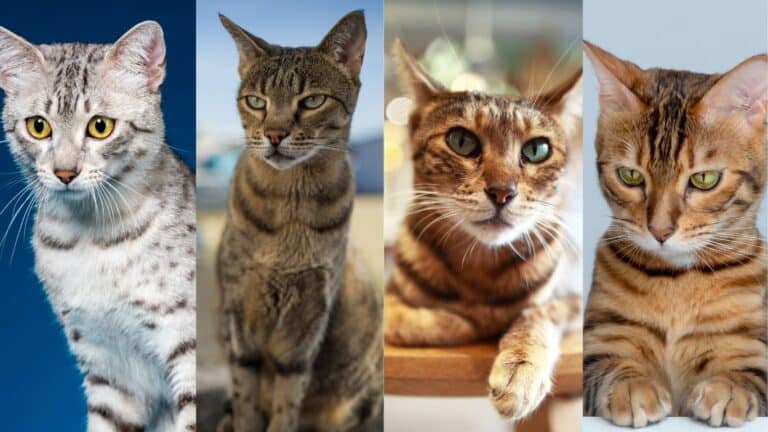As a devoted cat parent, you want to ensure that your furry friend’s diet is both nutritious and safe. Wondering, “Can cats eat pineapple?” is a natural curiosity. In this article, we will delve into the topic of cats and pineapple, exploring whether it is safe, beneficial, and suitable for feline consumption. So, let’s unravel the mystery of whether cats can indulge in a fruity treat or if it’s best to stick to their regular diet.
Purr-Fect Insights:
Are Pineapples Safe for Cats?
Yes, pineapples are safe for cats to eat. The ASPCA includes pineapple on its list of safe foods for cats. However, as with any food, moderation is key. Cats should only be given small amounts of pineapple as an occasional treat to avoid digestive issues.
Cats are obligate carnivores, which means their diet should primarily consist of animal-based proteins. While pineapples contain some beneficial nutrients like vitamins and minerals, cats do not require these nutrients in their diet. Their nutritional needs are best met through a balanced diet specifically formulated for cats.
Feeding cats excessive amounts of pineapple can lead to digestive upset, including vomiting and diarrhea. Additionally, pineapple skin, leaves, and sugary syrups should be avoided, as they can be tough to digest and may cause blockages or contribute to weight gain. Always offer only the flesh of the pineapple to your cat, and in small quantities to prevent any potential health issues.
“Pineapple can be a refreshing and flavorful treat for your feline friend, but remember to give it in moderation to keep their diet balanced and avoid any adverse reactions.”
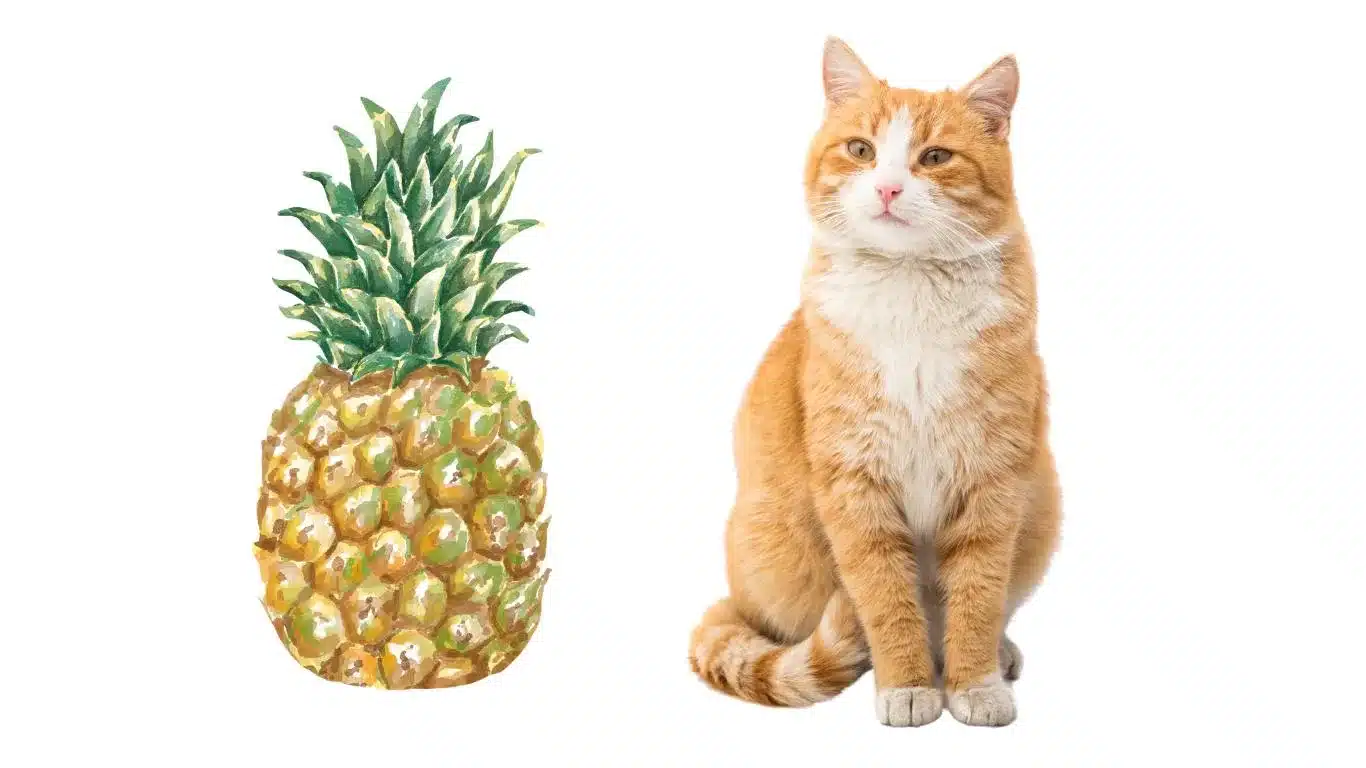
Are Pineapples Good for Cats?
While pineapples contain some beneficial nutrients like vitamins and minerals, they do not provide significant health benefits for cats. Cats are obligate carnivores, which means their diets should primarily consist of animal-based proteins. They can obtain all the necessary nutrients from their regular diet and do not require fruits or vegetables like pineapples.
Although pineapples contain vitamins A, B6, E, and K, as well as calcium, folate, iron, magnesium, phosphorus, potassium, and zinc, these nutrients can be adequately provided through their meat-based diet. Cats’ bodies have evolved to efficiently process and derive essential nutrients from animal proteins.
Feeding pineapples to cats:
“While pineapples are not harmful to cats in small amounts, they are not necessary for their overall well-being.”
Instead of adding pineapples to their diet, it is important to focus on providing high-quality commercial cat food that is formulated to meet their specific nutritional needs. This ensures they receive the proper balance of protein, fats, vitamins, and minerals that are essential for their health and longevity.
Additionally, feeding cats large amounts of pineapple can lead to digestive upset, such as vomiting and diarrhea. The tough skin and leaves of pineapples should be avoided, as they can be difficult for cats to digest and may even cause intestinal blockages.
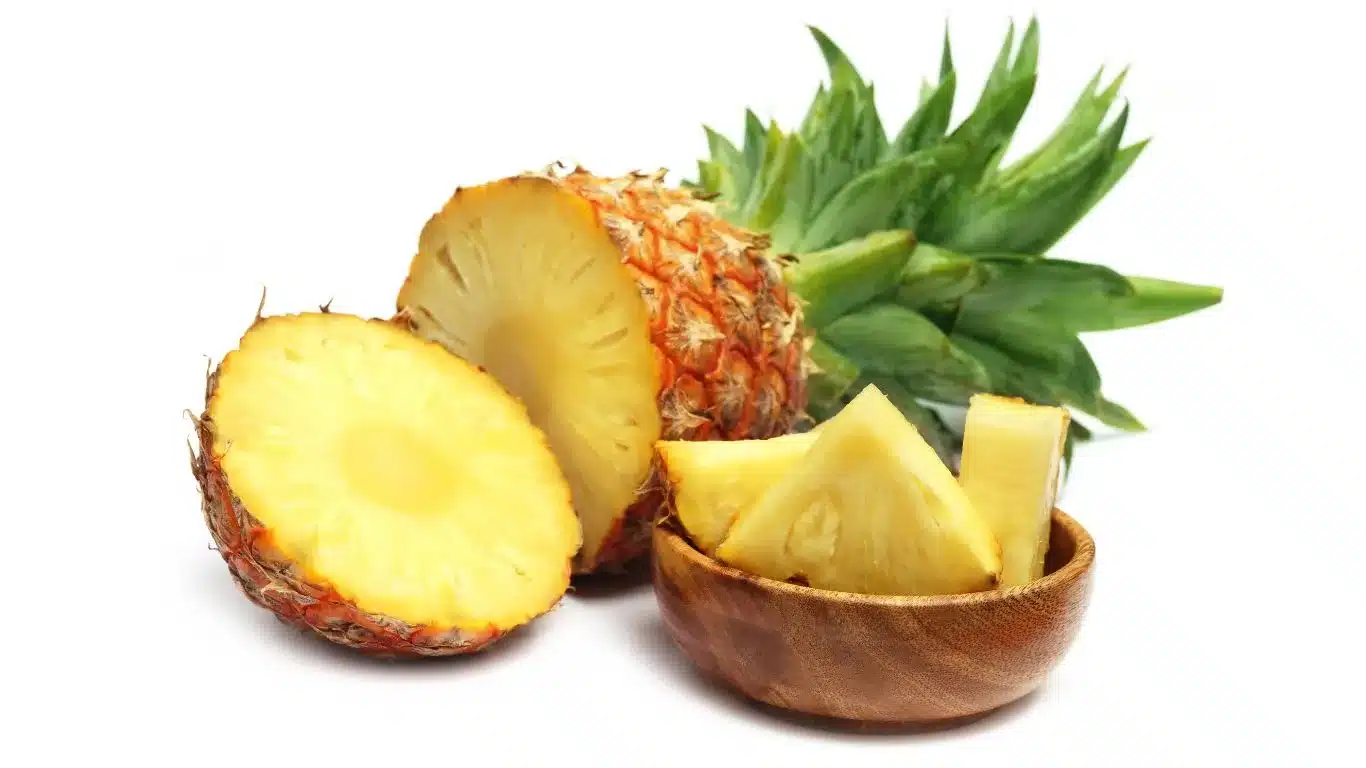
In moderation, pineapples can be given as an occasional treat:
“Occasionally offering small pieces of fresh pineapple as a treat can provide some variety and enrichment for your cat.”
When offering pineapple to cats, it is crucial to remove the skin, core, and any sugary syrups. Offering only the flesh of the pineapple in small portions ensures their safety and enjoyment without compromising their health.
| Benefits of Pineapple for Cats | Points to Consider |
|---|---|
| Contains vitamins A, B6, E, and KIncludes minerals like calcium, folate, iron, magnesium, phosphorus, potassium, and zincMay add variety to their diet as an occasional treat | Cats don’t require these nutrients as obligate carnivoresCan obtain necessary nutrients from their regular meat-based dietPotential for digestive upset if given in large amountsAvoid the skin, leaves, and sugary syrups |
When is Pineapple Bad for Cats?
Feeding cats excessive amounts of pineapple can be detrimental to their digestion and overall health. While pineapple is generally safe for cats in moderation, it should only be given as an occasional treat. Here are some potential dangers of feeding cats pineapple:
- Pineapple can cause digestive issues: Cats have sensitive digestive systems, and consuming too much pineapple can lead to gastrointestinal upset, such as vomiting and diarrhea.
- Pineapple skin and leaves can cause blockages: The tough texture of pineapple skin and leaves makes them difficult for cats to digest. If ingested, they can potentially cause blockages in the digestive tract, leading to serious health complications.
- Pineapple in sugary syrups or high-calorie treats: Cats should never be given pineapple that is coated in sugary syrups or as part of high-calorie treats. These can contribute to weight gain and potentially lead to obesity-related health issues.
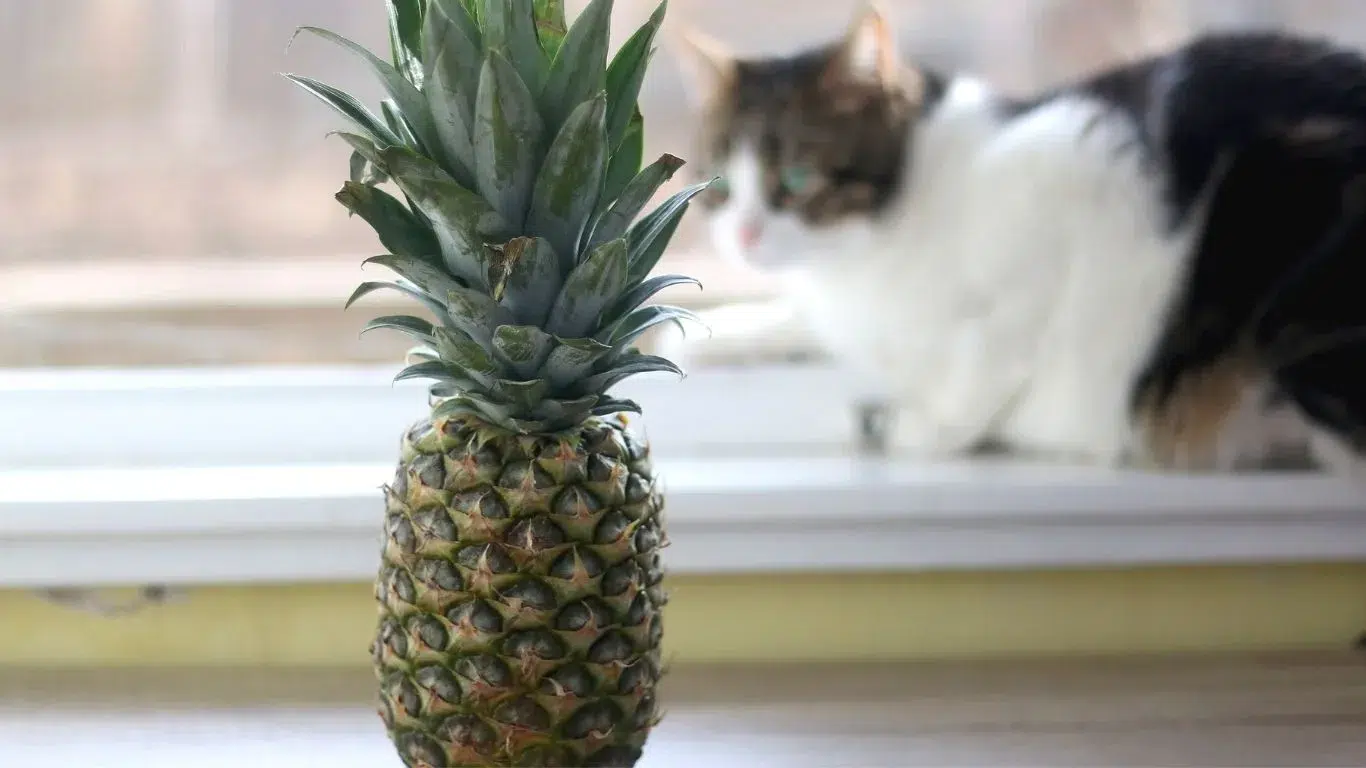
To ensure the safety of your cat, it is important to offer pineapple in moderation and follow these guidelines:
- Provide small amounts of pineapple as an occasional treat, rather than a regular part of their diet.
- Only offer the flesh of the pineapple without the skin or leaves.
- Avoid pineapple in sugary syrups or as part of high-calorie treats.
By following these precautions, you can prevent potential risks and ensure that your cat’s health and well-being are protected.
Do Cats Like Pineapple?
Cats have different taste receptors compared to humans, which means their perception of taste can vary. When it comes to sweet foods like pineapple, cats do not have the ability to taste sweetness in the same way humans do. However, this doesn’t mean that cats won’t enjoy the experience of eating pineapple.
Some cats may find the texture of pineapple appealing and refreshing, thanks to its juicy and moist flesh. While they may not register the sweet flavor, the sensation of biting into the fruit and the release of its natural juices can be enticing for them.
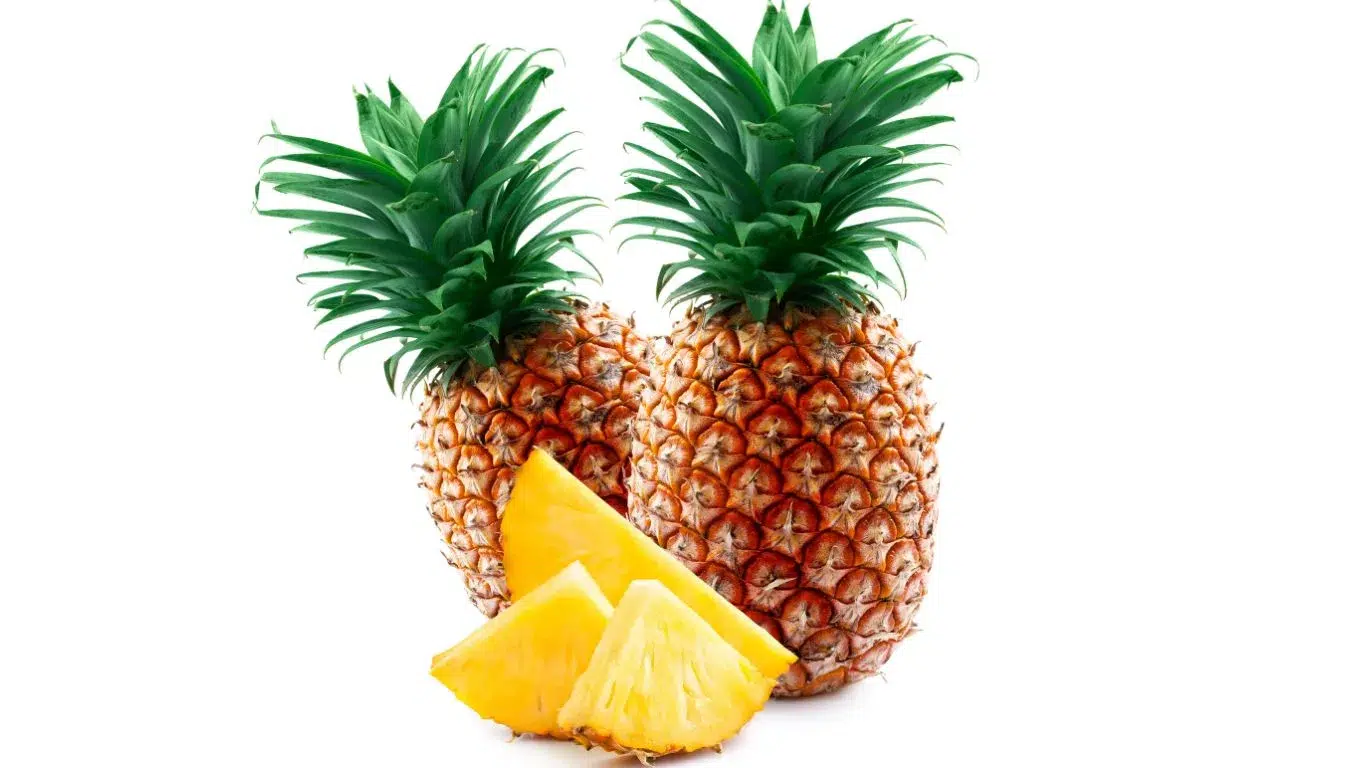
It’s important to note that when offering pineapple to your cat, you should only provide them with the flesh of the fruit and avoid the tough leaves or skin. These parts can be difficult for cats to chew and digest, potentially causing digestive issues or blockages.
| Cats and Pineapple | What Cats Don’t Taste |
|---|---|
| Some cats may enjoy the texture and moisture of pineapple. | Cats cannot taste sweetness in the same way humans do. |
| Offer only the flesh of the pineapple and avoid the tough leaves or skin. | Cats lack taste receptors for sweet flavors. |
Can Kittens Eat Pineapple?
While kittens can technically eat pineapple, it is not recommended to include it in their diet. Pineapple does not provide any essential nutrients for their growth and development. Kittens have specific nutritional needs that differ from adult cats, and it is best to feed them a balanced diet specifically formulated for their requirements.
Feeding pineapple to kittens can potentially cause digestive issues such as vomiting and diarrhea. Their delicate stomachs may not be able to tolerate the acidity and fiber content of pineapple, leading to discomfort and upset stomach. It is important to prioritize their well-being and avoid introducing foods that may cause unnecessary health issues.
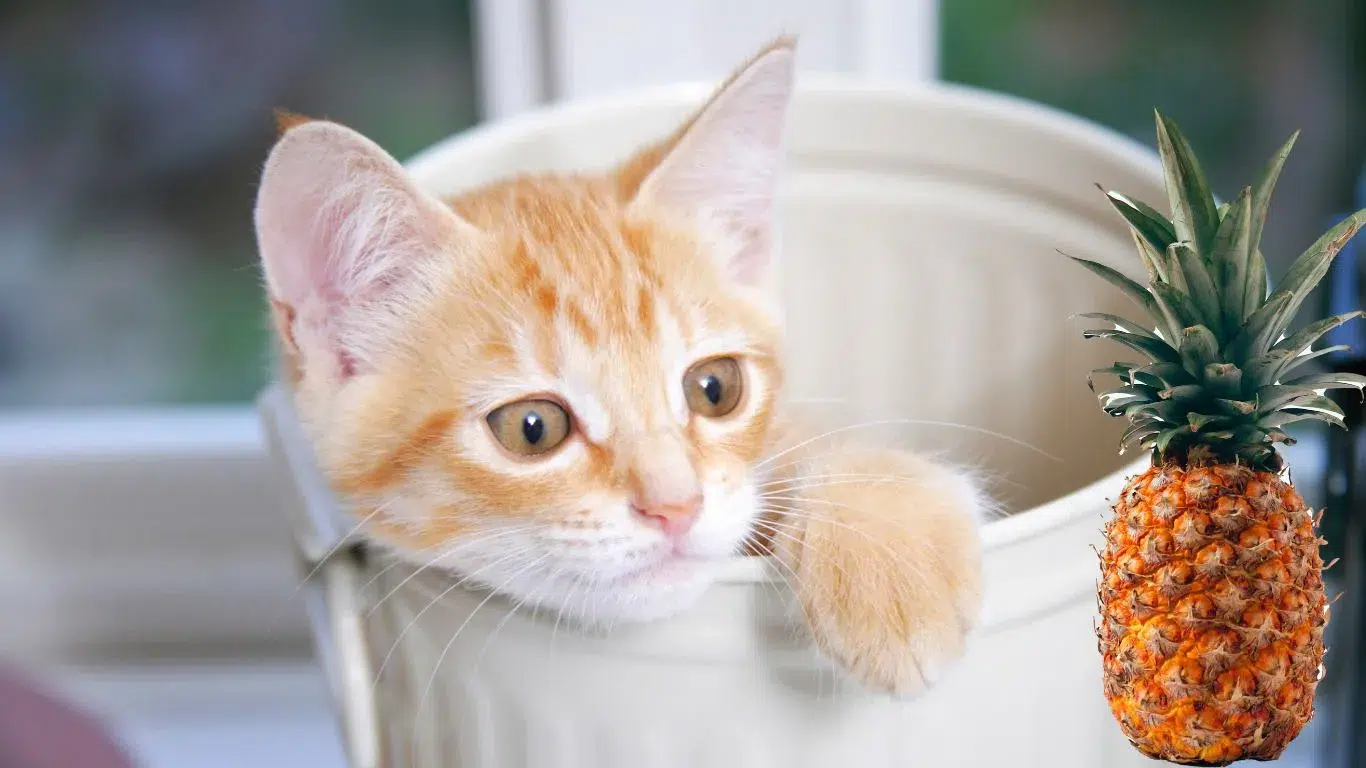
If you are considering introducing new foods to your kitten’s diet, it is always recommended to consult a veterinarian. They can provide personalized advice based on your kitten’s age, weight, and specific dietary needs. Professional guidance will ensure that your kitten receives the necessary nutrients for their healthy growth without any potential complications.
Remember: Kittens require a specially formulated diet that meets their unique nutritional needs. Stick to food specifically designed for kittens and consult your veterinarian before introducing any new foods.
Cats’ Dietary Needs
Cats, as obligate carnivores, have specific dietary needs that differ from other animals. Their diet should primarily consist of animal-based proteins, fats, and essential vitamins and minerals.
Protein: Cats require essential amino acids, such as taurine, which are found abundantly in animal proteins. These amino acids are crucial for their overall health and well-being, supporting important functions like muscle development, maintaining a healthy heart, and promoting proper vision. An adequate protein intake is vital for cats of all ages.
Fats: Fats play a crucial role in a cat’s diet by providing concentrated energy. They not only serve as a valuable fuel source but also help in maintaining healthy skin and coat. Omega-3 and omega-6 fatty acids, commonly found in animal fats, are particularly beneficial for cats’ overall health and immune system.
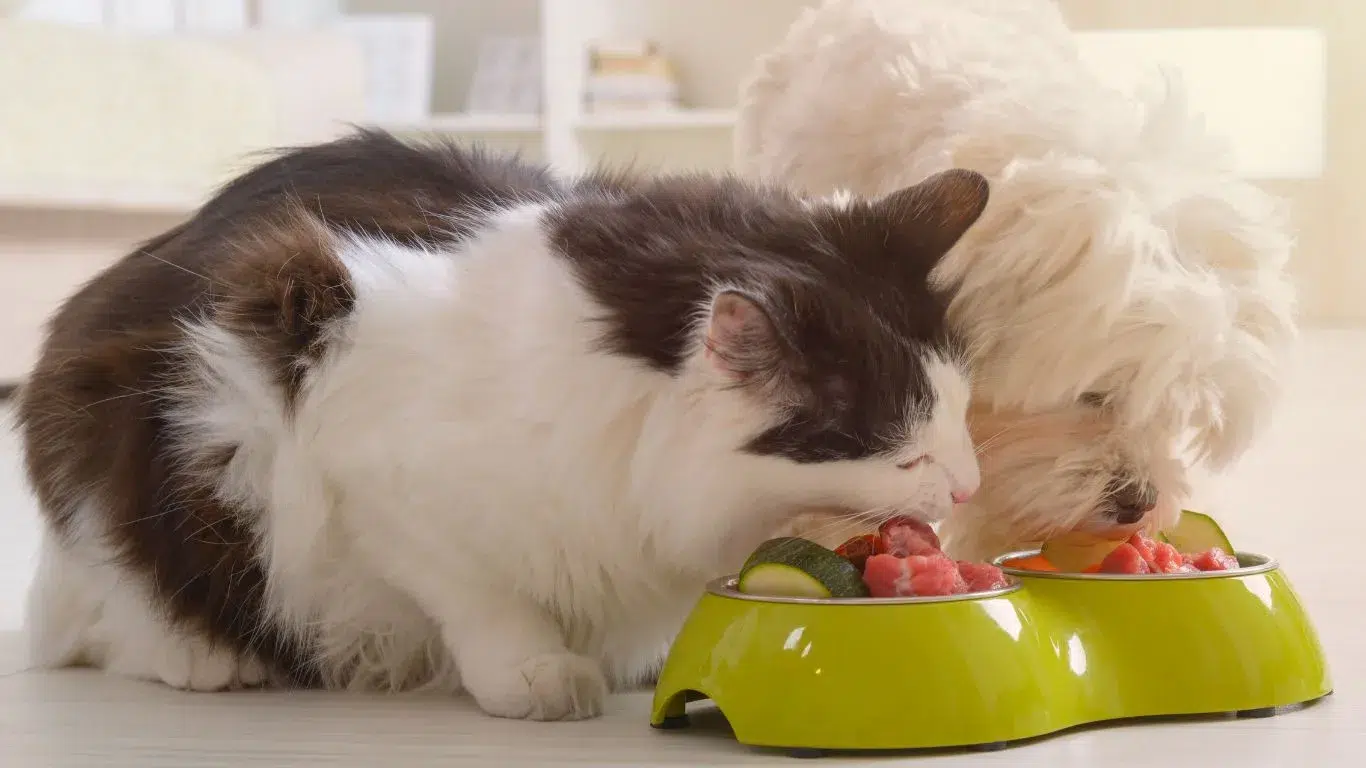
Vitamins and Minerals: Cats have specific vitamin and mineral requirements that are best obtained from animal sources. For instance, Vitamin A is essential for their vision and general growth, while Vitamin D supports calcium absorption and bone health. Minerals like calcium, phosphorus, and magnesium are crucial for their skeletal system and overall well-being.
Carbohydrates should be limited in a cat’s diet as they have a limited ability to process them. While small amounts of carbohydrates can be found in their natural prey, cats do not need significant dietary sources of carbohydrates to meet their nutritional needs.
| Nutrient | Sources |
|---|---|
| Protein | Meat, poultry, fish |
| Fats | Poultry fat, fish oil |
| Vitamins | Organ meats, eggs, fish |
| Minerals | Bones, organs, fish |
Feeding a Balanced Diet
To ensure that your cat’s dietary needs are met, it is essential to provide a well-balanced and nutritionally complete diet. High-quality commercial cat food, formulated specifically for cats’ nutritional requirements, is the best way to meet these needs. These foods are formulated with the right balance of protein, fats, vitamins, and minerals, ensuring your cat receives all the necessary nutrients.
Furthermore to commercial cat food, you can also offer occasional treats as long as they are safe and appropriate for cats. However, treats should never replace their regular diet and should be given in moderation.
Consulting with a veterinarian is crucial for understanding your cat’s specific dietary needs, especially if they have any underlying health conditions. A veterinarian can provide personalized recommendations and guidance on feeding your cat a nutritionally balanced diet.
Safe Ways to Offer Pineapple to Cats
When it comes to offering pineapple to your feline friend, it’s essential to prioritize their safety and well-being. Follow these guidelines to ensure a safe and enjoyable experience for your cat:
- Introduce pineapple gradually: Start by offering a small piece of fresh pineapple to your cat. Watch for any signs of digestive upset or adverse reactions. If your cat tolerates it well, you can continue to offer pineapple in small amounts as an occasional treat.
- Prepare pineapple properly: Remove the tough skin, leaves, and core of the pineapple, as these parts can be difficult for cats to digest. Cut the pineapple into small, bite-sized pieces to make it easier for your cat to eat.
- Offer plain pineapple without additives: Avoid giving your cat pineapple that is canned in sugary syrups or mixed with other ingredients. Plain, fresh pineapple is the safest option for cats.
- Monitor your cat’s reaction: After offering pineapple to your cat, observe their behavior and monitor their stools. If you notice any signs of digestive discomfort, such as vomiting or diarrhea, discontinue offering pineapple and consult your veterinarian.
Remember, pineapple should be given to cats in moderation and should not replace their regular diet. If you have any concerns or questions about feeding pineapple or any other food to your cat, consult your veterinarian for personalized advice.
| Safe Ways to Offer Pineapple to Cats | |
|---|---|
| Introduce pineapple gradually | Start by offering a small piece of fresh pineapple to your cat. Watch for any signs of digestive upset or adverse reactions. If your cat tolerates it well, you can continue to offer pineapple in small amounts as an occasional treat. |
| Prepare pineapple properly | Remove the tough skin, leaves, and core of the pineapple, as these parts can be difficult for cats to digest. Cut the pineapple into small, bite-sized pieces to make it easier for your cat to eat. |
| Offer plain pineapple without additives | Avoid giving your cat pineapple that is canned in sugary syrups or mixed with other ingredients. Plain, fresh pineapple is the safest option for cats. |
| Monitor your cat’s reaction | After offering pineapple to your cat, observe their behavior and monitor their stools. If you notice any signs of digestive discomfort, such as vomiting or diarrhea, discontinue offering pineapple and consult your veterinarian. |
Join the Pet Planet Diaries
Sign up for our newsletter to get the latest tips, stories, and exclusive insights into the wonderful world of pets.
Final Remarks
After exploring the topic of cats and pineapples, it can be concluded that while cats can eat pineapple, it is not an essential part of their diet. Pineapple does not provide the necessary nutrients that cats need, as they are obligate carnivores. Therefore, it should only be given as an occasional treat in moderation.
When considering a cat’s diet, it is crucial to focus on animal-based proteins and fats, which are the cornerstone of their nutrition. Offering a well-balanced, species-appropriate diet that meets their dietary needs is crucial for their overall health and well-being.
If you choose to offer pineapple to your cat, ensure that it is prepared and offered safely. Remove the tough leaves and skin, and only offer the flesh in small, manageable pieces. Additionally, it is always recommended to consult with a veterinarian for personalized advice on your cat’s diet and nutrition, as they can provide valuable insights and guidance based on your cat’s individual needs.
While the occasional indulgence of pineapple may bring some enjoyment to your feline friend, it is important to prioritize their overall dietary requirements. Cats rely on a diet primarily consisting of animal-based proteins and fats, and other essential nutrients sourced from their regular cat food. So, while pineapple can add variety to their palate, it is not a necessary component for their overall health and well-being.
FAQ
Can cats eat pineapple?
Yes, cats can eat pineapple in moderation as it is considered safe for feline consumption. However, cats do not require fruits or vegetables in their diet as they are obligate carnivores.
Are pineapples safe for cats?
Yes, pineapples are safe for cats to eat. The ASPCA includes pineapple on its list of safe foods for cats. However, moderation is key. Cats should only be given small amounts of pineapple as an occasional treat to avoid digestive issues.
Are pineapples good for cats?
While pineapples contain some beneficial nutrients like vitamins and minerals, cats do not require these nutrients in their diet as they are obligate carnivores. Pineapples do not provide significant health benefits beyond their regular diet.
When is pineapple bad for cats?
Feeding cats excessive amounts of pineapple can be bad for their digestion and may cause vomiting and diarrhea. Cats should only be given small amounts of pineapple as an occasional treat. Additionally, pineapple skin and leaves, as well as sugary syrups, should be avoided as they can be tough to digest and may cause blockages or contribute to weight gain.
Do cats like pineapple?
Cats may or may not like pineapple, as they do not taste sweet foods in the same way humans do. Some cats may enjoy the texture of pineapple and find it refreshing due to its moisture content.
Can kittens eat pineapple?
Kittens can technically eat pineapple, but it does not provide any essential nutrients for their growth and development. It is best to stick to a balanced diet specifically formulated for kittens and consult a veterinarian before introducing any new food.
What are cats’ dietary needs?
Cats have specific dietary needs as obligate carnivores. Their diet should primarily consist of animal-based proteins, fats, and specific vitamins and minerals. Carbohydrates should be limited in their diet.
What are safe ways to offer pineapple to cats?
When offering pineapple to cats, it is important to follow these safety guidelines: feed small amounts as an occasional treat, avoid pineapple skin and leaves, and do not offer pineapple in sugary syrups or as part of high-calorie treats.
Can cats eat pineapple? Conclusion
Yes, cats can eat pineapple in moderation, but it is not necessary for their diet. Pineapple should only be given as an occasional treat and should not replace their regular balanced diet.

